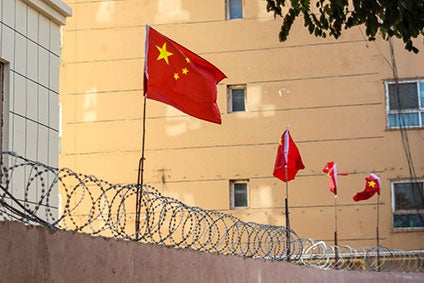
Under the blanket law, US customs and Border Protection can reasonably assume any goods that have come from the XUAR region have been produced by means of forced labour and blocked from entering the US.
But that’s not all. Even if goods were in part created in the Xinjang Uyghur Autonomous Region (XUAR) and then transferred to be finished elsewhere, they can be blocked from entering the country. This certainly creates some level of complexity for clothing brands and retailers across the US because the chances of their finished goods from elsewhere containing inputs from the Uyghur region are relatively high. Earlier this year, the US Customs & Border Protection was urged to pay closer attention to cotton-based goods being imported from Vietnam after allegations the country is importing Xinjiang cotton to help China bypass sanctions imposed as part of the Uyghur Forced Labor Prevention Act.
It is likely the demands under the new law will continue to evolve. And while US brands across the board have welcomed the act as they look to tackle the issue of forced labour, it would serve them well to seek knowledge and engage technologies that help trace the origin of the product. Recently, Sourcemap announced the Forced Labour Compliance Platform has been specifically developed to help companies solve the “chain of custody challenge” – proving they can trace products from raw material to US import – by assembling definitive proof of the entities within their supply chains. And there’s DNA traceability and isotopic testing technology like that from Applied DNA which can help reduce issues and time taken to release the goods at US borders.
Elsewhere, the US effort to diversify production continues with textile groups urging the US Trade Representative to extend tariffs on China finished goods which they say will help support the investment and effort into nearshoring and job creation in the States.
Uyghur forced labour act goes live in the US today – a timeline of events
The Uyghur Act comes into full force in the US, banning the import of all goods from the Xinjiang region of China.
DNA traceability testing can help brands navigate Uyghur Act requirements
US importers can use DNA traceability and isotopic testing services like those offered by Applied DNA, to prove their goods did not originate in Xinjiang.

US Tariffs are shifting - will you react or anticipate?
Don’t let policy changes catch you off guard. Stay proactive with real-time data and expert analysis.
By GlobalDataUS textile groups urge continuation of tariffs on China finished goods
US textile groups are urging the Biden Administration to maintain Section 301 penalty tariffs on finished textiles and apparel or risk reversing investment and efforts into nearshoring and US jobs.
Texprocess 2022 – Top innovations unveiled
Following a three-year hiatus due to the Covid pandemic, the industry convened in Frankfurt, Germany, to attend the Techtextil and Texprocess trade shows. Just Style was in the audience as the winners of this year’s Innovation Awards were announced.
Why the sudden influx of apparel rental and resale programmes?
Sustainable Apparel Coalition exclusive: ‘Change only possible through collaboration’
What do fashion companies say about Vietnam as an apparel sourcing base?
European Fashion Alliance eyes unified sustainability approach
Experts urge global standard on due diligence legislation to ‘connect puzzle’
EU proposes new rules for sustainability reporting in greenwashing crackdown
Nike set to gain from Russia exit, says analyst
Primark in Click & Collect launch but experts want greater multichannel focus



